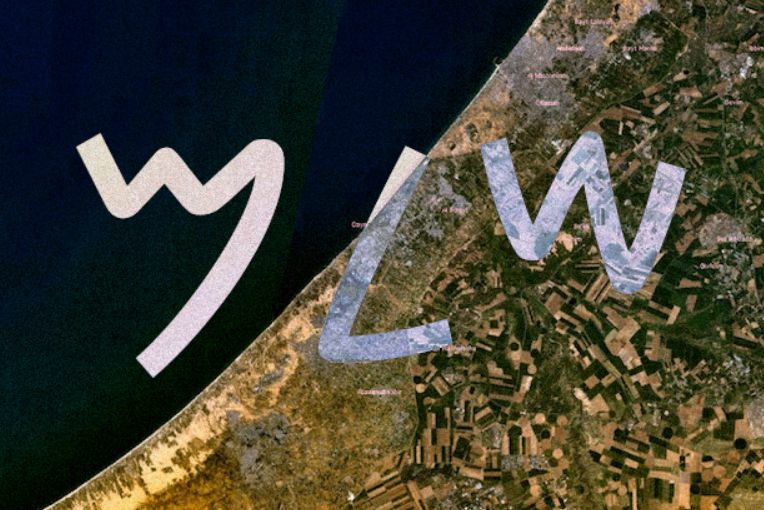
Scientists have found that the two sides of the Palestinian-Israeli conflict – Israeli Jews and Palestinians living in the Gaza Strip and on the West Bank – have a different perception of the concept of peace. Both of them interpreted the world almost equally often as ending the war, but the Israelis also more often associated it with the establishment of harmonious friendly relations, while the Palestinians – with the achievement of justice. The concept of peace for each participant in the conflict is associated with their advantage in this conflict and the way researchers see a way out of the situation, the scientists conclude in an article published in the Proceedings of the National Academy of Sciences.
The concept of peace (we are talking about the meaning of calm and lack of hostility) has three separate interpretations, depending on what terms are used to explain it. In the first, “positive” meaning, peace is the establishment of friendly relations between parties to the conflict; the second meaning is “negative”: according to it, peace is the end of war and bloodshed. Finally, the third, “neutral” (or, as it is often called, “structural”) meaning is the world as the establishment of justice.
These three meanings, albeit different, are not mutually exclusive: for any person, the world can be either one or the second, or the third. Interpretation, however, can vary depending on perception and external factors: in other words, for one and the same person, the world, depending on the situation in which he needs to be adjusted, can be both conditionally negative and positive.
A factor that influences the choice of the primary meaning of peace can be a military conflict, especially if the forces of the two sides (for example, in terms of external support or territorial ownership) are not equal. A good example is a Palestinian-Israeli conflict, in which two states – Israel and partially recognized Palestine – have been trying to divide two territories since the middle of the 20th century: the western bank of the Jordan River and the Gaza Strip. In this conflict, Israel has more advantages (military, legal and territorial); Palestine, meanwhile, is more disadvantaged.
Participants in the conflict, outside countries and political scientists see two main ways to resolve the conflict: the separation of the disputed territory and the recognition of Palestine by all and joint ownership of the territory and the unification of Israelis and Palestinians (“one state for two peoples”). Today, most residents of both states are inclined to the first option, but the second has supporters.
Oded Adomi Leshem and Eran Halperin of the Hebrew University of Jerusalem suggested that the citizens of Israel and Palestine have different understandings of peace depending on which side of the conflict they are on and their position on the resolution of the conflict. To do this, they conducted a survey in which 500 Jews living in Israel and 500 Palestinians living in the West Bank and the Gaza Strip took part. The survey took place in early August 2017 – then, according to the authors of the work, there was a relatively calm atmosphere between the states.
Each participant was asked, on a scale of 1 to 5, to rate nine other concepts related to peace: justice, no war, harmony, freedom, no bloodshed, partnership, life, equality, and agreement. Each word was associated with one interpretation of the word peace: depending on how participants assess the proximity of the world and each of the concepts, scientists determined its leading definition. In addition, the researchers also collected volunteer demographic data and asked them what they thought about the resolution of the conflict.
Most Palestinians and Israelis (69 and 73 per cent, respectively) preferred peace as the end of the war – that is, its negative interpretation. At the same time, opinions on the other two interpretations, positive and structural, were divided: 43 per cent of Israelis and 32 per cent of Palestinians associated the concept of peace with positive peace, and 23 per cent of Israelis and 52 per cent of Palestinians associated with structural peace.
Interpretation of the world also correlated with the opinions of the participants regarding the Palestinian-Israeli conflict. Thus, regardless of nationality, the participants supporting the decision on “one state for two peoples” more often (p = 0.04) interpreted the world in a positive rather than negative way, while supporters of “two states for two peoples” prefer to view the world in a structural and not negative way (p = 0.03).
Thus, the interpretation of the world by the two sides of the same conflict depended, on the one hand, on their nationality (and, therefore, on the advantage in the conflict itself), and on the other, on the opinion of how the conflict should be resolved. The results can be clearly illustrated by the example of the Palestinians: for them, peace is, first and foremost, an end to the war (as, incidentally, for the Israelis), secondly, the establishment of justice, and only thirdly, the formation of friendly relations. It is clear that Palestine, as an infringed party to the conflict, immediately after the end of the bloodshed, strives for justice to triumph; only in the last place peace is about establishing warm relations with Israel. In addition, if we pay attention to the supporters of the concept of “two states for two peoples”.
The most significant attempt to resolve the conflict is considered to be the agreements signed by Oslo in 1993: according to them, Palestine (then under the leadership of Yasser Arafat) is recognized by Israel, and Israel, in turn, surrenders disputed territories in exchange for peace. The conflict, however, was not settled then – and has not come to an end so far.